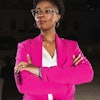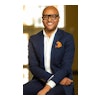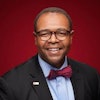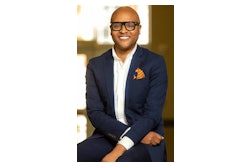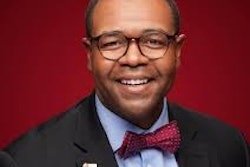During these times of economic uncertainty when resources for professional development are scarce, elite private universities—especially those in urban areas—have a public obligation to the future of higher education.
That was the thinking of officials at New York University in 1984, when they launched the Faculty Resource Network (FRN) which has become an international model for the initiatives and support that it offers its 50 member institutions that include a mix of community colleges, historically Black colleges and universities and other four-year institutions both in the U.S. and abroad.
It’s no secret that at small to medium-size colleges, opportunities for research, curricular advancement and faculty development are often limited. Each year, FRN provides lectures, symposia and intensive seminars for faculty and administrators designed to improve the quality of teaching and learning at its member and affiliate institutions.
FRN’s core belief is that training educators to be innovative teachers, well-informed scholars, and fully rounded intellectuals enriches the educational experience and skills of all their students.
In exchange, participants get a chance to collaborate and network across institutions, forging bonds with other academicians who care deeply about the future of higher education.
Recently, hundreds of FRN members traveled to New Orleans for a two-day discussion titled, “Engaging with Diversity in the College Classroom.” Discussions centered on a variety of topics from the dynamics of diversity in the college classroom, to perspectives on diversity in the global context. Dr. Terrell Strayhorn, president of Do Good Work Educational Consulting, delivered an electrifying keynote about creating student belonging and success in college classrooms.
Dr. Ron Robin, president of the University of Haifa, provided a case study from the Middle East, where 18,000 Palestinian and Israeli students attend classes and learn together, despite the age-old political and religious tensions that have existed in the area for years.
“Thirty-five percent of our student population is minority,” said Robin, who previously served as senior vice provost at NYU. “There is nothing like that at any university in Israel.”
After Hurricane Irma devastated Puerto Rico, Gilberto J. Marxuach Torrós, president of University of the Sacred Heart, said that officials from the FRN helped to arrange for faculty to record classroom lectures so that students who were unable to attend classes because of the storm wouldn’t miss a beat.
For Dr. Emmanuel Chijioke, who teaches finance and law at Talladega College—the small, private liberal arts school in Alabama—FRN’s network is invaluable. Talladega is a member institution and he has attended FRN events since 1990.
“It gives you exposure that you can’t receive anywhere else,” said Chijioke. “Many of our institutions don’t have the resources for faculty development, but because we’ve participated in this program, I’ve had the opportunity to meet professors in other places.”
That’s precisely the point of FRN, said Dr. Debra M. Szybinski, who is the executive director.
“For over three decades, the Faculty Resource Network at New York University has been committed to providing professional development opportunities to faculty at more than 50 partner institutions, more than half of which are minority-serving,” said Szybinski. “It is both gratifying and amazing to experience the impact of their cross-institutional collaborations.”
At the New Orleans gathering where tough conversations centered on diversity and inclusion, Szybinski said that she was pleased by the engagement.
“We were excited to convene this gathering of faculty and administrators from a broad range of colleges and universities across the nation and the world to address the serious challenges we face in the academy of how to best address the issues of diversity and inclusion,” said Szybinski.
At a time when colleges and universities are looking for best practices to help their students and faculty, the work of NYU’s Faculty Resource Network should be studied and examined.
Wouldn’t it be great if we could replicate this program all across the nation, and indeed the world, with other elite institutions stepping up to lead the charge? There’s no question in my mind that if we did so, higher education would be changed for the better.
Jamal Eric Watson is the executive editor of Diverse: Issues In Higher Education. You can reach him at [email protected] and can follow him on Twitter @jamalericwatson



